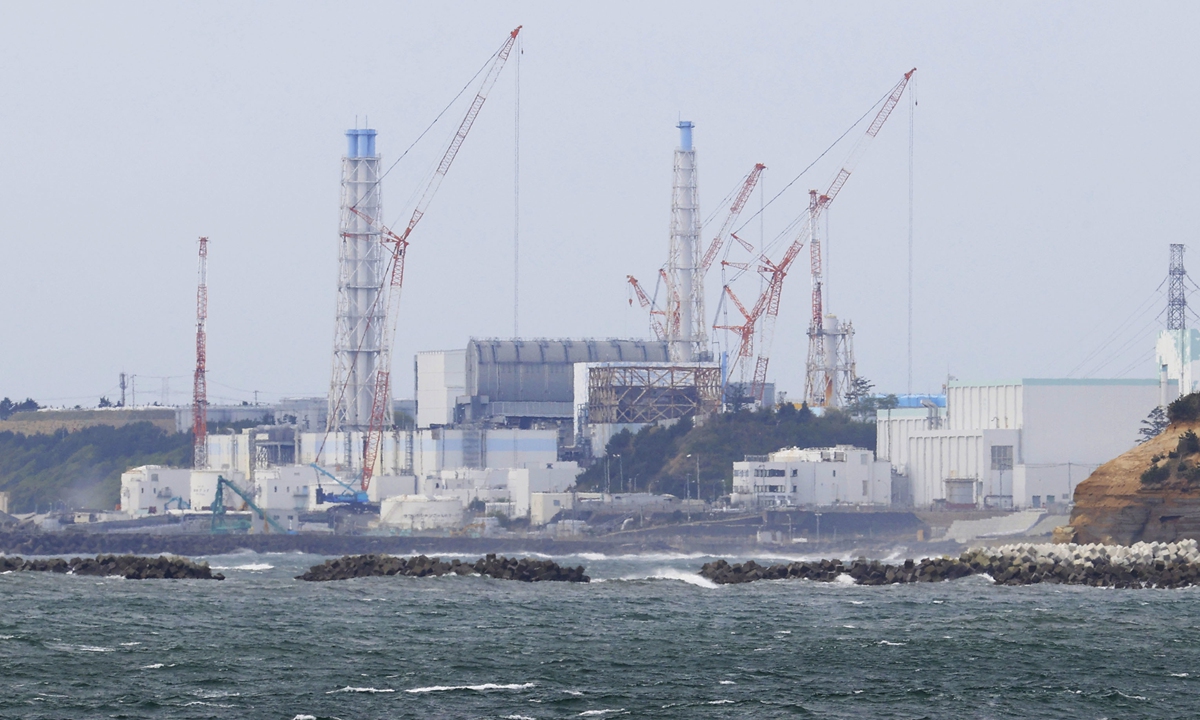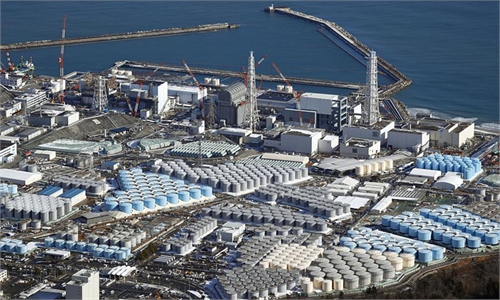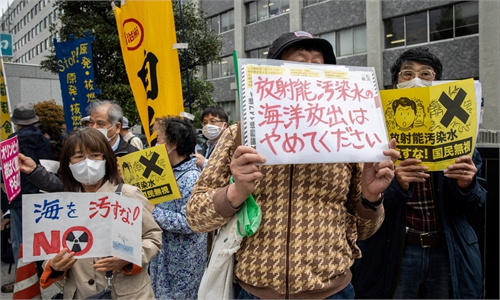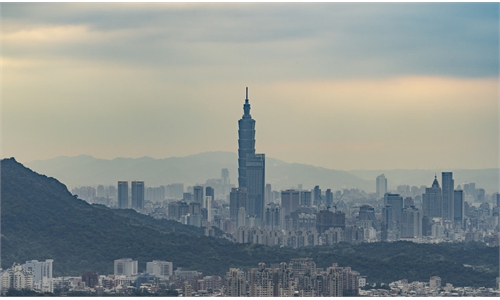Japanese radioactive waste puts ocean at risk

Photo taken from Namie in Fukushima Prefecture, northeastern Japan, on Tuesday shows the crippled Fukushima Daiichi nuclear power plant. Tokyo decided the same day to release radioactive water into the sea. Photo: VCG
Japan's plan to dump radioactive waste water from its crippled Fukushima Daiichi nuclear power plant into the Pacific Ocean will endanger marine products and contaminate the ocean further, a South Korean green activist has said."Eleven years has passed since the Fukushima power plant accident occurred, but its radioactive contamination has not been mitigated much," Ahn Jae-hun, energy and climate change director at the Korea Federation for Environment Movement, a green advocacy group in Seoul, told the Xinhua News Agency recently.
The group's analysis of the 2021 data from Japan's Ministry of Health, Labor and Welfare showed that cesium was detected from 8 percent of Japanese fishery products.
"If radioactive waste water is discharged into the ocean, it will endanger marine products and deepen marine contamination further," said Ahn.
The contaminated water will inevitably spread into the Pacific Ocean, polluting oceans in neighboring countries [of Japan]."
The Japanese government planned to release about 1.25 million tons of nuclear waste water into the ocean spanning 30 years from 2023.
Japan has claimed that the contaminated water could be diluted with water and discharged at a lower concentration, but Ahn said the claim repeatedly proved wrong as the purification equipment cannot eliminate radioactive materials completely.
The green activist said the dilution with water cannot lessen the total amount of contamination, calling the irradiated sewage discharge "the worst way to resolve" as it can never be retrieved after being released into the ocean.
Xinhua



